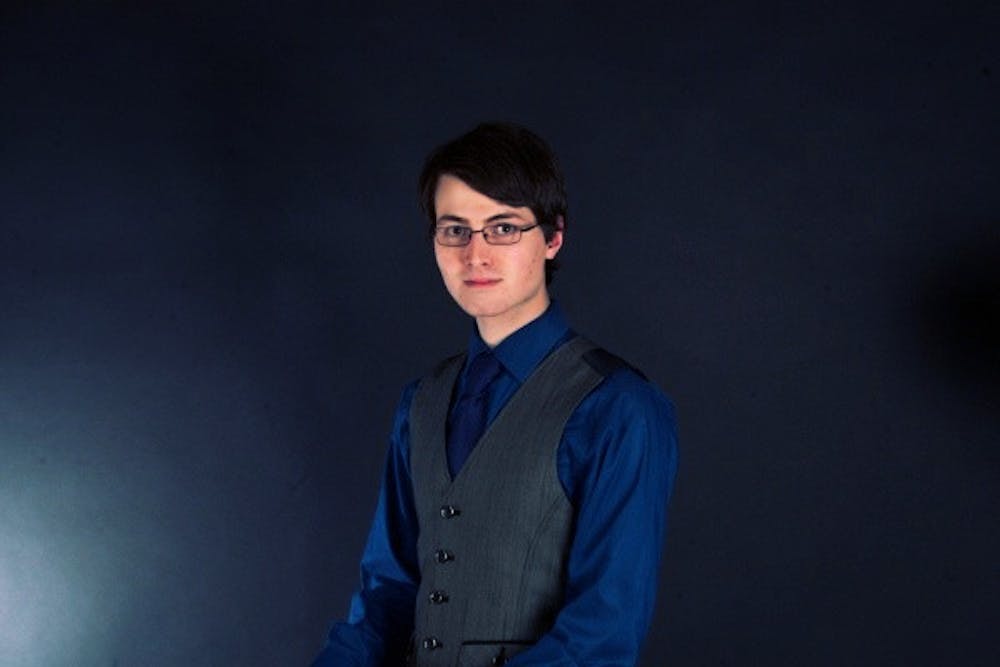CMU student researches how ego influences personality, health
Charles Fales, Central Michigan University doctoral student studying Industrial Organizational Psychology, researched connections that ego has with human’s personality and mental health in his thesis called “The mediating effect of ego depletion between personality and health”.
Fales discovered how five personality characteristics such as openness, conscientiousness, extraversion, agreeableness and narcissism influence ego and mental health.
“(Research's) central hypotheses were that certain variables would actually relate to ego depletion, which would then also relate to health outcomes,” Fales said. “Results are a little mixed.”
Findings of the research
For his research, Fales said he conducted a survey. He recruited around 110 full-time working American adults on an online tool called Prolific.
He said he used different measures such as asking how much participants felt that they were burned-out from their jobs, whether they were noticing any health problems, how extroverted they felt they were and other similar questions.
An initial prediction that Fales said he had before getting into his research did not turn out to be supported. He predicted that conscientious, which also means hard-working and self-reliable people, would have had negative influence of their ego on their mental health. However, Fales said that according to the survey he conducted those who are hard-working and self-reliable do not have negative influence on ego and mental health.
“Hard-working, self-reliant people are … very good at taking care of themselves and just being on top of what they need to do in order to stay functioning,” Fales said.
Kimberly O’Brien, CMU faculty member in the department of Psychology, advised Fales on his research. She said her favorite finding that Fales had in his survey was that narcissism negatively influences personality and health.
“(For narcissists) a lot of things feel like a threat,” O’Brien said. “If someone doesn’t wave to you … (because) maybe they (are) having a bad day … they might interpret that as a threat, as somebody being mean to them.”
“Those who are narcissistic are very selfish and self-absorbed … their personality variables related to worse ego and by extension, worse health outcomes,” Fales said.
In Fales findings, he said agreeable people had similar experiences to narcissistic people. The agreeableness lead to ego depletion (process of losing ego), tiredness and worse mental health outcomes.
However, according to Fales, those that are extroverted had normal egos and that ego did not influence their mental health outcomes negatively.
Future of the research
O’Brien said she enjoyed working with Fales on his research.
“I really value him as an upcoming colleague,” O’Brien said.
Fales said for the future he will work on a different subject for his dissertation “to expand (his) knowledge of expertise.” Other students possibly interested in the topic might continue the research, he said.
“I’d certainly try to support them if I could,” Fales said.
Fales recommended future researchers and students to take care of themselves, listen to other voices of reason for their work and expand their creativity.
“Science is a very slow-going iterative process, and you should take any individual study with a grain of salt, and not to put too much trust in it, and allow people to really take the time … further think about the results and findings of a study before putting too much weight on it,” Fales said.
Researching process and challenges
Fales said the idea of the research came from his former advisor in Roosevelt University, Chicago, where Fales transferred from four years ago.
He said his former advisor found out there was not much work being done in the field of the connections between ego, personality and health.
“(We had an) idea that there could potentially be these different paths to similar ends when it comes to personality and … not only your personality influences your health outcomes in general … but also how that comes to influence your own mental exhaustion and your daily level of energy,” Fales said.
Then Fales said he "worked around" the idea and came up with a research.
O’Brien said she supported Fales’ idea when he came to CMU because such research has not been established before.
She said she also liked the methods that Fales used for the research such as statistical and mediation analysis, which means analyzing the cause and effects of things.
Fales had 21 drafts of his research, O’Brien said.
“(Fales) worked really diligently on it,” she said.
“It was a little tiring,” Fales said. “Sticking with one project for so long and not seeing the fruits of labor can be pretty exhausting … Now that it’s finally done, I can say that it’s been a very enriching and exhilarating process.”
Fales said he received a lot of support from family, friends and advisor that kept him motivated.
“I have a very wonderful social support circle around me,” Fales said. “Also, I still try to find some time on a daily basis to disconnect from work and other things to enjoy my hobbies.”
O’Brien said her challenge as a professor was to give fair feedback but not to discourage a student.
“Even though he went through a lot of iterations of the draft, he never got discouraged,” O’Brien said. “We have high standards and he has high standards too.”
She said throughout numerous attempts, the thing that kept them going was a clear goal.
“We had a goal that we wanted thesis that would contribute to what we already know,” O’Brien said. “It kept us on track.”
O’Brien advised students interested in research to be clear with their professors about their goal and be diligent but patient.
“Open (paper) every week, just know where the paper is … so it stays fresh,” O’Brien said. “On the other hand, you can’t rush it, you have to be patient.”
CMU student research can be found in the CMU Libraries archives.







